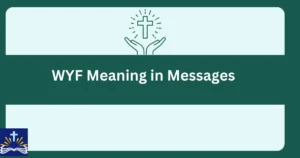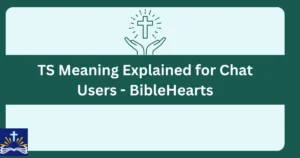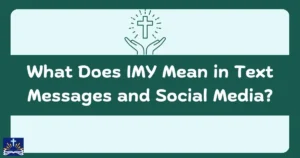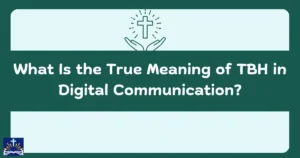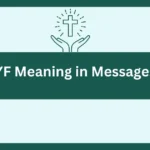“The Bible offers profound insights into the beauty of diversity and the call for unity among all people.”
In a world characterized by a rich tapestry of cultures, races, and ethnicities, understanding the Biblical perspective on diversity and unity is both timely and essential. The Scriptures offer guidance on how to embrace and celebrate diversity while fostering unity among all people.
The concept of mixing races and cultures is not just a modern issue but one addressed with wisdom and compassion in Biblical teachings.
Exploring how the Bible addresses racial diversity and unity can provide us with valuable lessons on love, respect, and inclusion. Through various verses, we gain insight into God’s vision for humanity and how we are called to interact with one another.
This blog post will delve into key Scriptures that highlight the importance of diversity and unity, offering practical applications for how we can live out these teachings in our lives.
By reflecting on these verses, we can better appreciate the Biblical view on race and work towards a more inclusive and harmonious world. The following sections will provide a comprehensive look at Scriptural perspectives on mixing races, accompanied by real-life examples and practical advice.
1. The Biblical Foundation of Diversity
Verses:
- Genesis 1:27: “So God created humanity in his own image, in the image of God he created them; male and female he created them.”
- Acts 17:26: “From one man he made all the nations, that they should inhabit the whole earth; and he marked out their appointed times in history and the boundaries of their lands.”
- Revelation 7:9: “After this I looked, and there before me was a great multitude that no one could count, from every nation, team, people and language, standing before the throne and before the Lamb.”
- Galatians 3:28: “There is neither Jew nor Gentile, neither slave nor free, nor is there male and female, for you are all one in Christ Jesus.”
- Colossians 3:11: “Here there is no Gentile or Jew, neither circumcised nor uncircumcised, neither barbarian, Scythian, neither slave nor free, but Christ is all, and is in all.”
- Matthew 28:19: “Therefore go and make disciples of all nations, baptizing them in the name of the Father and of the Son and of the Holy Spirit.”
Real-Life Example:
In a multicultural city, a church embraces diversity by welcoming members from various racial and ethnic backgrounds. By reflecting on Genesis 1:27 and Revelation 7:9, the church fosters a community that values and celebrates all cultures, demonstrating unity in diversity.
2. Unity in Christ Across Different Cultures

Verses:
- Ephesians 2:14: “For he himself is our peace, who has made the two groups one and has destroyed the barrier, the dividing wall of hostility.”
- 1 Corinthians 12:13: “For we were all baptized by one Spirit so as to form one body—whether Jews or Gentiles, neither slave nor free—and we were all given the one Spirit to drink.”
- Romans 10:12: “For there is no difference between Jew and Gentile—the same Lord is Lord of all and richly blesses all who call on him.”
- John 17:21: “That all of them may be one, Father, just as you are in me and I am in you. May they also be in us so that the world may believe that you have sent me.”
- Philippians 2:2: “Then make my joy complete by being like-minded, having the same love, being one in spirit and of one mind.”
- Acts 10:34-35: “Then Peter began to speak: ‘I now realize how true it is that God does not show favoritism but accepts from every nation the one who fears him and does what is right.’”
Real-Life Example:
A global non-profit organization brings together individuals from various countries to work on humanitarian projects. By living out Ephesians 2:14 and 1 Corinthians 12:13, the organization promotes unity and cooperation among people from diverse backgrounds, achieving common goals through mutual respect and understanding.
3. God’s Love and Acceptance for All People
Verses:
- 1 John 4:7: “Dear friends, let us love one another, for love comes from God. Everyone who loves has been born of God and knows God.”
- Romans 13:10: “Love does no harm to a neighbor. Therefore love is the fulfillment of the law.”
- Galatians 5:14: “For the entire law is fulfilled in keeping this one command: ‘Love your neighbor as yourself.’”
- John 3:16: “For God so loved the world that he gave his one and only Son, that whoever believes in him shall not perish but have eternal life.”
- Matthew 22:39: “And the second is like it: ‘Love your neighbor as yourself.’”
- James 2:1: “My brothers and sisters, believers in our glorious Lord Jesus Christ must not show favoritism.”
Real-Life Example:
A community outreach program offers support and friendship to refugees and immigrants, demonstrating unconditional love and acceptance. By embodying 1 John 4:7 and John 3:16, the program helps integrate newcomers into the community, showing that love and acceptance transcend cultural and racial boundaries.
4. Overcoming Prejudices and Embracing Equality
Verses:
- Leviticus 19:34: “The foreigner residing among you must be treated as your native-born. Love them as yourself, for you were foreigners in Egypt. I am the LORD your God.”
- Proverbs 31:8: “Speak up for those who cannot speak for themselves, for the rights of all who are destitute.”
- Isaiah 1:17: “Learn to do right; seek justice. Defend the oppressed. Take up the cause of the fatherless; plead the case of the widow.”
- Zechariah 7:10: “Do not oppress the widow or the fatherless, the foreigner or the low-income. Do not plot evil against each other.”
- Acts 17:26: “From one man he made all the nations, that they should inhabit the whole earth; and he marked out their appointed times in history and the boundaries of their lands.”
- James 2:9: “But if you show favoritism, you sin and are convicted by the law as lawbreakers.”
Real-Life Example:
An advocacy group works to address racial inequalities and support marginalized communities. By following Leviticus 19:34 and Proverbs 31:8, the group advocates for fair treatment and equal rights, challenging prejudices and promoting justice for all.
Bible Verses About Repairing Relationships
5. Celebrating Diversity in Worship and Community
Verses:
- Psalm 86:9: “All the nations you have made will come and worship before you, Lord; they will bring glory to your name.”
- Romans 15:7: “Accept one another, then, just as Christ accepted you, in order to bring praise to God.”
- Revelation 5:9: “And they sang a new song, saying: ‘You are worthy to take the scroll and to open its seals, because you were slain, and with your blood you purchased for God persons from every crew and language and people and nation.’”
- 1 Chronicles 16:23: “Sing to the LORD, all the earth; proclaim his salvation day after day.”
- Psalm 67:4: “May the nations be glad and sing for joy, for you rule the peoples with equity and guide the nations of the earth.”
- Zephaniah 3:9: “Then I will purify the lips of the peoples, that all of them may call on the name of the LORD, and serve him shoulder to shoulder.”
Real-Life Example:
A church hosts a multicultural worship service that includes music, prayers, and traditions from various cultures. By embracing Psalm 86:9 and Revelation 5:9, the church celebrates the diversity of its congregation and fosters a sense of unity and shared faith.
6. Encouraging Inclusivity in Christian Fellowship
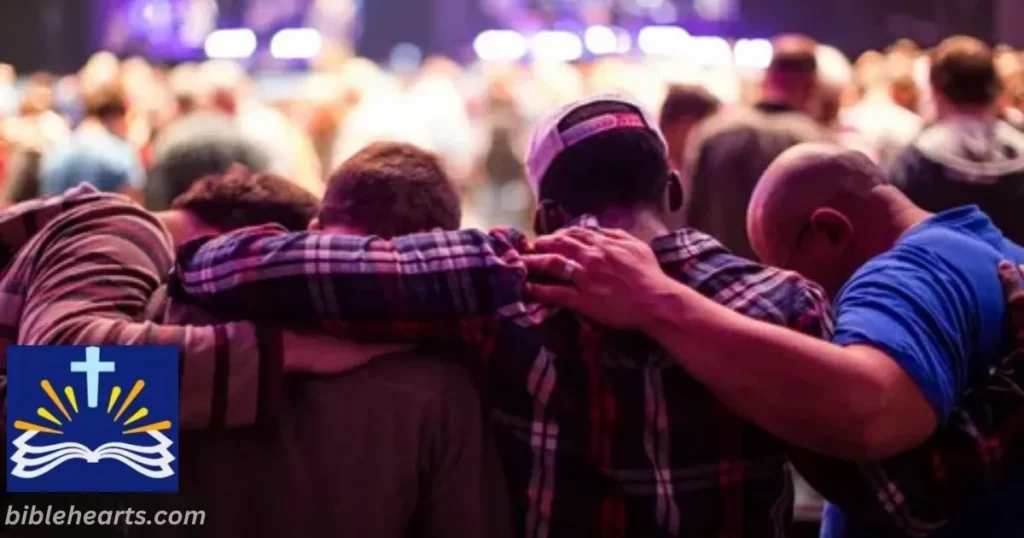
Verses:
- Hebrews 13:2: “Do not forget to show hospitality to strangers, for by so doing some people have shown hospitality to angels without knowing it.”
- Galatians 6:2: “Carry each other’s burdens, and in this way you will fulfill the law of Christ.”
- 1 Peter 4:9: “Offer hospitality to one another without grumbling.”
- Romans 12:13: “Share with the Lord’s people who are in need. Practice hospitality.”
- Matthew 25:35: “For I was hungry and you gave me something to eat, I was thirsty and you gave me something to drink, I was a stranger and you invited me in,”
- Luke 14:13: “But when you give a banquet, invite the low-income, the physically disabled, the sad, the blind,”
Real-Life Example:
A local community center hosts events that welcome individuals from all backgrounds and socioeconomic statuses. By following Hebrews 13:2 and Romans 12:13, the center fosters inclusivity and provides support for everyone, demonstrating the value of Christian fellowship and hospitality.
7. Addressing Common Misconceptions and Promoting Understanding
Verses:
- Proverbs 18:13: “To answer before listening—that is folly and shame.”
- James 1:19: “Everyone should be quick to listen, slow to speak and slow to become angry,”
- 2 Timothy 2:24: “And the Lord’s servant must not be quarrelsome but must be kind to everyone, able to teach, not resentful.”
- Ephesians 4:29: “Do not let any unwholesome talk come out of your mouths, but only what is helpful for building others up according to their needs, that it may benefit those who listen.”
- Colossians 4:6: “Let your conversation be always full of grace, seasoned with salt, so that you may know how to answer everyone.”
- Proverbs 15:1: “A gentle answer turns away wrath, but a harsh word stirs up anger.”
Real-Life Example:
A dialogue group dedicated to addressing racial and cultural issues fosters open and respectful conversations among diverse participants. By practicing Proverbs 18:13 and James 1:19, the group promotes understanding and works to dispel misconceptions, encouraging mutual respect and cooperation.
How Can Understanding Biblical Perspectives on Racial Diversity Enhance My Relationships?
Answer: Understanding Biblical perspectives on racial diversity can enhance your relationships by fostering a deeper appreciation for others’ backgrounds and experiences. By embracing the teachings of the Bible on unity and love, you cultivate empathy, respect, and inclusivity in your interactions.
This approach helps build stronger, more meaningful connections with individuals from diverse backgrounds and contributes to a more harmonious and supportive community.
Answers to Key Questions
1. What does the Bible say about racial diversity?
The Bible emphasizes that all people are created in the image of God and are valued equally. Verses like Genesis 1:27 and Revelation 7:9 highlight the importance of recognizing and celebrating diversity as part of God’s creation.
2. How can I apply Biblical teachings on unity in my interactions with people from different cultures?
Apply Biblical teachings by practicing love, respect, and understanding. Embrace Ephesians 2:14 and John 17:21 by seeking common ground and fostering inclusive relationships that reflect God’s vision for unity.
3. Are there any Biblical principles for addressing racial prejudice?
Yes, Biblical principles such as those found in Leviticus 19:34 and Proverbs 31:8 encourage treating all individuals with fairness and justice, challenging prejudices, and advocating for equal rights.
4. How can I contribute to a more inclusive community based on Biblical teachings?
You can contribute by actively engaging in practices that promote inclusivity and understanding, such as participating in diverse community events, supporting initiatives that address inequality, and embodying the love and acceptance taught in the Bible.
5. What role does hospitality play in fostering unity among different racial and cultural groups?
Hospitality plays a crucial role in fostering unity by creating welcoming environments where individuals from diverse backgrounds feel valued and included. Biblical teachings in Hebrews 13:2 and Romans 12:13 highlight the importance of showing kindness and openness to all.
Conclusion
The Bible offers timeless wisdom on embracing diversity and fostering unity among all people. Through its teachings, we learn that all individuals are created in the image of God and are worthy of respect and love. By reflecting on Scriptures related to racial diversity.
We are encouraged to build inclusive communities and nurture relationships that honor God’s vision for humanity. As we strive to embody these Biblical principles, we contribute to a more compassionate and unified world. Celebrating the beauty of our diverse backgrounds while remaining united in our shared faith.

Hi! I’m Jane Austen, a classic novelist known for my keen observations on society and relationships, bringing timeless tales to life.

